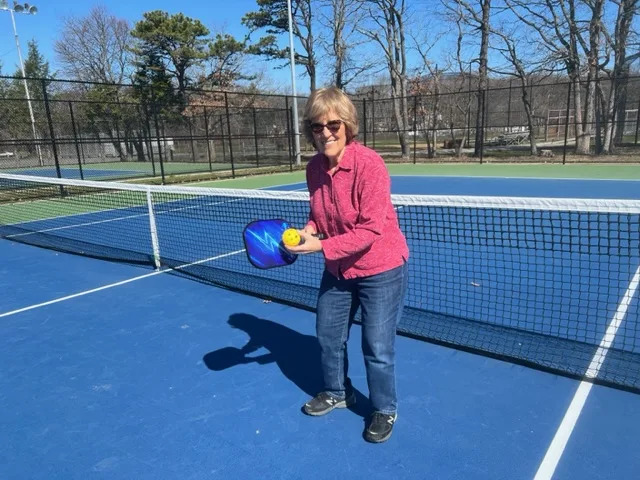I'm pretty good at this. My Mom at 94 is still quite sharp, still drives, bought a new car at age 90. Does a daily habit of a small glass of Mogen David wine, handful of nuts and a few pieces of dark chocolate. Dad died at 92 from Parkinson's and dementia. Not going to happen to me. Coffee is my prevention.
Don't follow me, I'm not medically trained.
I'm doing a 12 cup pot of coffee a day to lessen my chance of dementia and Parkinsons. Tell me EXACTLY how much coffee to drink for that and I'll change.
How coffee protects against Parkinson’s Aug. 2014
Coffee May Lower Your Risk of Dementia Feb. 2013
And this: Coffee's Phenylindanes Fight Alzheimer's Plaque December 2018
How Coffee May Protect Brain Health: A New Study Suggests The Benefits Aren't Just From Caffeine December 2018
Caffeine causes widespread brain entropy (and that's a good thing)
April 2018
This Many Coffees(6) Is Bad For Your Heart Health August 2020
Study: The More Coffee You Drink, the Longer You Live July 2018
The latest here:
4 science-backed habits that will keep you mentally sharp into your 70s, from older adults who lived it
Simply reading statistics on the sheer number of people in the U.S. who are currently living with Alzheimer’s disease—6 million, or 1 in 9 adults aged 65 or older, according to the Alzheimer’s Association—is enough to make you want to take immediate action to ward off cognitive decline. But where do you begin?
More from Fortune: 5 side hustles where you may earn over $20,000 per year—all while working from home Looking to make extra cash? This CD has a 5.15% APY right now Buying a house? Here's how much to save This is how much money you need to earn annually to comfortably buy a $600,000 home
These people in their 70s say they feel mentally sharp thanks to some key habits, many of which they’ve been doing for decades. And neuroscientists say these seniors’ tactics actually hold a lot of weight in helping to ward off memory loss and cognition issues down the line.
Daily exercise
Joel Slaven, a 78-year-old working dentist from Los Angeles, says exercise has been a part of his life for many years. And yes, movement not only makes your muscles stronger, but your brain, too.
“I’ve been a long-distance cyclist for 35 years,” says Slaven. “I also do vigorous walking and use a rowing machine while using light wrist weights. A lot of what I’ve read about brain activity seems to connect to fitness.”

He’s right: Exercise is so important to cognitive health because it keeps the heart and blood vessels healthy, explains Raphi Wald, Psy.D., neuropsychologist at the Marcus Neuroscience Institute at Baptist Health’s Boca Raton Regional Hospital. “The healthier [your heart and blood vessels] are, the better they stay at nurturing the brain with the oxygen and nutrition it needs to thrive,” says Wald.
Being active doesn’t just help prevent cognitive disease, but exercise also helps combat typical age-related brain damage too, says Dr. Joel Salinas,, a neurologist specializing in dementia, clinical assistant professor in NYU Langone's department of neurology and chief medical officer at Isaac Health, an online memory clinic. Tiny paper cut-like scars are often found on imaging, such as an MRI, of most aging brains (more so for those with high blood pressure, high cholesterol, or who smoke) indicating damage. However, “the more active you are throughout your life, the less likely you are to develop those kinds of changes in the brain,” says Salinas.
Making meaningful connections
Two different wine groups, one weekly Zoom meeting and one monthly pot luck one, Weekly trivia at a local bar. 2-3 nights live jazz music, numerous friends there, I'm responsible for getting there early enough to get a table.
Slaven often works out with his wife or daughter as he says “my close family relationships make me very happy,” but the brain health benefits go even deeper than anecdotal joy. In fact, science shows that these kinds of meaningful connections are another key factor that can make a big impact on your brain health over time.
“Whether through the mechanism of mental simulation, reduction of stress, or engagement in healthier lifestyles, social engagements do reduce people's risk of developing dementia,” says Salinas.
When Terry Lieber, 77, a retired school teacher from Melville, NY moved into a 55+ community, she quickly introduced herself to a group of women who were out walking, and they invited Lieber to join them. “Since then, I walk with them almost every morning,” she says. “We chat a lot and discuss books. I also started playing Pickleball, which helps me connect with others, which is so important.”

Through his own research, Salinas found that people who have relationships that offer emotional support also had higher levels of BDNF, or brain-derived neurotrophic factor, a molecule that’s correlated with strong cognitive reserve, which is your brain’s ability to find clear neural pathways for information to flow in and out.
What’s more, “people who specifically have a listener available most or all the time are much more likely to have a cognitive age that’s about four years younger than their chronological age,” he says of his findings published in JAMA Network Open.
Lieber has various means of socializing, saying “I joined my local library, and take classes and go to functions there. I attend cooking and computer classes. I even took Canasta lessons. I play cards weekly and really enjoy the women who play.” But, if you’re struggling to find social outlets, the good news is that “it's not necessarily about having a ton of social connection so much as having some social connection,” says Salinas. That’s because it’s more important to avoid social isolation, as this can lead to feelings of loneliness, which can increase your risk for developing memory loss and other cognitive issues, according to a 2018 study published in The Journals of Gerontology.
Learning something new
Just learned Ken Ken, not very good yet, someday I'll tackle the hardest Sudoku puzzle; Platinum blonde.
Classes don’t just offer interpersonal connection, but allow you to learn something new, which, opposed to doing the same crossword-style puzzle every day, means that you're engaging more of the brain, and will then lead to growth of new pathways and connections, says Salinas. Taking a dance class is a great way to reap these benefits by checking multiple brain-health boxes at once. “You're learning something new, it offers social engagement, and there’s the physical activity piece,” he says
For Linda Julie Castro, 76, a retiree from San Diego, California, one newfound hobby that has challenged her mind is art. “I love to draw and paint,” says Castro. “I didn’t realize I could paint until I retired and my bucket list came out. Painting requires concentration—thinking about what color to use, where to put that color, and how. I’m always learning more.”
Activities such as painting—or gardening as it is for Mozelle Harding, 72, a retired stained glass designer from San Diego, California—are not just healthy brain habits because of their creativity, but doing things that bring you joy also helps reduce stress. Chronic stress can negatively impact cognitive health over time through hormonal changes, inflammation, and structural alterations in the brain, says Louisa Nicola, neurophysiologist and female human performance expert with Momentous, a performance nutrition brand.

Specifically, stress increases the production of the hormone cortisol, which studies have shown is associated with overall poor cognition, memory, and executive functioning. Stress also triggers inflammation throughout the body, which research indicates can contribute to cognitive decline and neurodegenerative diseases, adds Nicola. Ongoing stress can even change the structure of parts of the brain responsible for learning and memory, according to a study published in Neuropsychopharmacology.
“The quiet act of being in the garden, watching the birds in the birdbath and feeders, allows me to escape and to focus on something in my Zen space,” says Harding. While it’s impossible to eliminate all stress, implementing habits, such as spending more time outdoors and meditation, can help you reduce your overall stress level and do your brain a lot of good.
Stress reduction can also lead to better sleep. People with an unmanaged sleep issue are at a higher risk for developing dementia and are more likely to have signs of early biological changes in the brain specifically tied to Alzheimer’s disease, says Salinas. “Getting into a routine that provides a regular sleep routine gives your brains the best possible chances of thriving,” adds Wald. Healthy sleep habits include sticking to a consistent wake-sleep schedule, keeping a dark, calming bedroom, limiting caffeine and large meals close to bedtime, avoiding phone or other tech use at night, and getting adequate activity during the day, according to the Centers for Disease Control and Prevention.
Eating for brain health
I don't do either the MIND or Mediterranean diet since neither is specific enough to be useful, but I do get at least two servings of salmon a week.
As with most anything in health, you can’t forget the power of your diet. Slaven has been a vegetarian since his 60s. “As a survivor of lung cancer and someone who’s had heart bypass surgery, it's critical to keep my cardiovascular system clear of plaques, which applies to brain health as well,” he says. Consuming a diet rich in essential nutrients, particularly omega-3 fatty acids, can positively influence cognitive function and help preserve mental sharpness, says Nicola.
The MIND Diet or “Mediterranean-DASH Intervention for Neurodegenerative Delay” is often recommended, as it combines aspects of the Mediterranean diet and DASH (Dietary Approaches to Stop Hypertension) diet and encourages you to eat foods that are associated with better brain health, such as antioxidant-rich berries, high-fiber leafy greens and whole grains, and lean protein sources like turkey and chicken, and limit foods that are high in saturated and trans fats, which are linked to inflammation and heart disease, two known risk factors for dementia.
This story was originally featured on Fortune.com
No comments:
Post a Comment